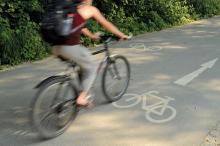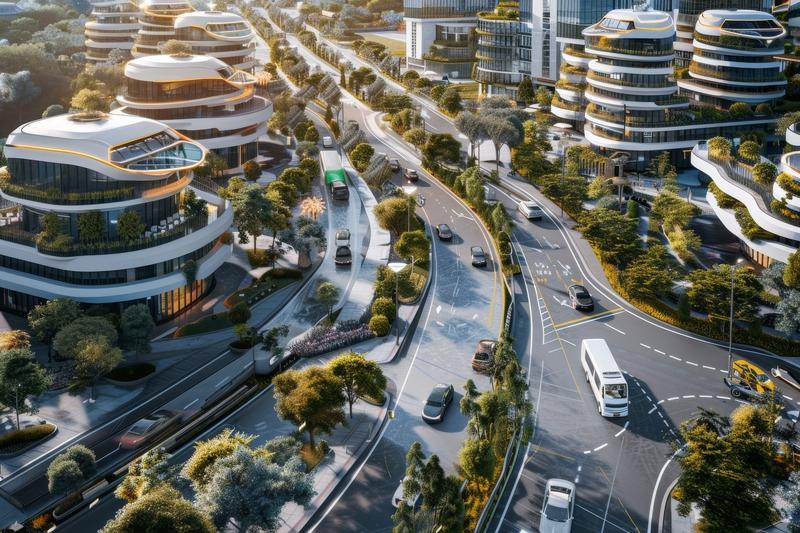According to a recent report by the London Assembly Transport Committee report into motorcycle safety, Easy Rider: Improving motorcycle safety on London roads, around 17 per cent of those injured on London’s roads and 24 per cent of serious casualties are motorcyclists, despite this mode accounting for one percent of traffic. After a period of decline it appears the number of motorcyclist casualties in London is growing again. In 2010, 4,337 motorcyclists were injured on London’s roads. By 2014, this had gr
According to a recent report by the London Assembly Transport Committee report into motorcycle safety, Easy Rider: Improving motorcycle safety on London roads, around 17 per cent of those injured on London’s roads and 24 per cent of serious casualties are motorcyclists, despite this mode accounting for one percent of traffic. After a period of decline it appears the number of motorcyclist casualties in London is growing again. In 2010, 4,337 motorcyclists were injured on London’s roads. By 2014, this had grown to 5,233, an increase of 21 per cent.
Its findings include: The inconsistency across London in access to bus lanes for motorcyclists causes unnecessary confusion. TfL allows motorcyclists to ride in bus lanes on the roads it manages, but many boroughs restrict access on their own roads. A more proactive strategy is required from TfL to help ensure a common approach across the city.
Close monitoring of Cycle Superhighway roads is necessary to assess the impact on safety for other vulnerable road users, particularly the reduction in road space for other traffic.
The BikeSafe scheme from TfL and the Metropolitan Police appears to be effective at increasing safety awareness but we must encourage participation of young riders.
A better understanding of why motorcyclist casualties occur is needed. Information could be improved through the application of new technology by the MPS, and additional information from the NHS.
Valerie Shawcross CBE AM, chair of the London Assembly Transport Committee said, “There are three types of vulnerable road user in the Capital - cyclists, pedestrians and motorcyclists. During my time on the Transport Committee we have spent a great deal of time and effort ensuring TfL considers the needs of cyclists and pedestrians - now it is time for them to pay more attention to the safety of motorcyclists. It’s no coincidence that TfL rushed out a PR release the day before our report was published – they know they’ve not done enough to protect motorcyclists in London. I hope our investigation prompts them to act.
“Powered two-wheelers can be the congestion-buster of the future. More and more deliveries could be made by motorbike and electrified motorcycles will have a big impact on pollution levels. We have to ensure there is space for all modes of transport on London’s roads and we have to ensure that every road user can get from A to B as safely as possible.”
Its findings include: The inconsistency across London in access to bus lanes for motorcyclists causes unnecessary confusion. TfL allows motorcyclists to ride in bus lanes on the roads it manages, but many boroughs restrict access on their own roads. A more proactive strategy is required from TfL to help ensure a common approach across the city.
Close monitoring of Cycle Superhighway roads is necessary to assess the impact on safety for other vulnerable road users, particularly the reduction in road space for other traffic.
The BikeSafe scheme from TfL and the Metropolitan Police appears to be effective at increasing safety awareness but we must encourage participation of young riders.
A better understanding of why motorcyclist casualties occur is needed. Information could be improved through the application of new technology by the MPS, and additional information from the NHS.
Valerie Shawcross CBE AM, chair of the London Assembly Transport Committee said, “There are three types of vulnerable road user in the Capital - cyclists, pedestrians and motorcyclists. During my time on the Transport Committee we have spent a great deal of time and effort ensuring TfL considers the needs of cyclists and pedestrians - now it is time for them to pay more attention to the safety of motorcyclists. It’s no coincidence that TfL rushed out a PR release the day before our report was published – they know they’ve not done enough to protect motorcyclists in London. I hope our investigation prompts them to act.
“Powered two-wheelers can be the congestion-buster of the future. More and more deliveries could be made by motorbike and electrified motorcycles will have a big impact on pollution levels. We have to ensure there is space for all modes of transport on London’s roads and we have to ensure that every road user can get from A to B as safely as possible.”







